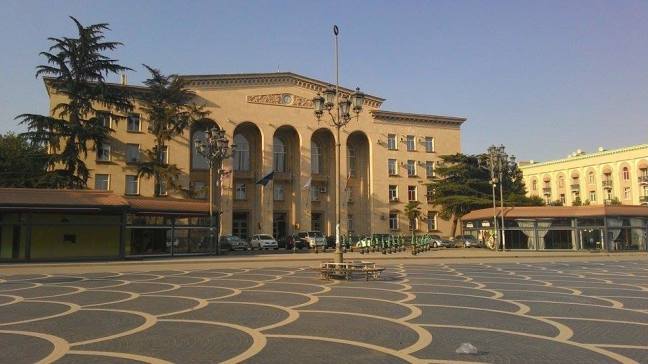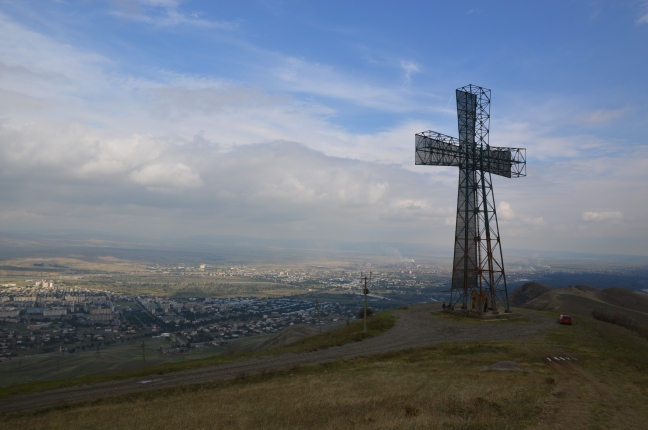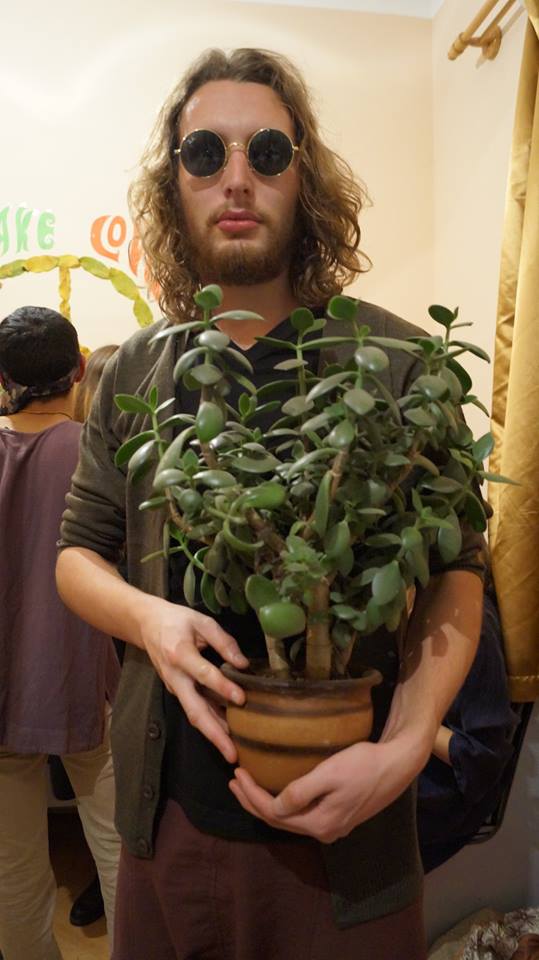A short moment of inattentiveness. You suddenly realise you’ve been talking to the girl who’s been sitting on your right for the last hour, but didn’t hear what she just said. You quickly turn your head around. She’s not the only one in this bright, comfortable dining room. Apart from the huge amounts of food and different wines that cover the large table, there are quite many people who joined you this evening. Some of the people you’ve already met on previous occasions, some of them complete strangers to you. Laughter and conversations penetrate your ears, you can make out stories about travels, experiences and simple declarations of friendship. The influence of the wine can already be heard. Then you feel the cold of the glass in your right hand, as you notice that the time has come for a next toast. Thankfully you grasp the full wineglass a bit tighter and apologetically explain the smiling dear on your right that you wish to listen to the toast that is about to be made by your neighbour across the table.
Some new food is being brought to the table by the lady of the house. Luckily, it’s not Khinkali, so fewer people will be distracted. The Tamada – your neighbour – is slowly standing up. You take a closer look at his face: Wise and dark eyes are gazing at you. Eyes that have experienced a lot, met many people and know the taste of a good story. Black hair, a certain tan on the face and a small beard are the main features of the face. A slightly edgy face, but not enough to consider it Russian. You cannot help but noticing that, all in all, it’s a pleasant Georgian face. A smile from his part, as he notices your polite attention. A waiting silence falls over the congregation; glasses are held in the right hand. And with the right attention, the Tamada begins his speech:’Let us drink tonight for our freedom. Under the rule of the Soviet Union, for almost 70 years, Georgia was deprived of its liberty and was restricted to the Union’s demands. Long enough had the quality of the wine suffered under their needs, for they only cared about quantity of wine produced. Human lifes were of little concern. However, after long fights, Georgia has freed itself again. Throughout the whole time of oppression, the idea of freedom had stayed in the minds of people. It’s not for nothing that the Georgian language had stayed an official language and it’s also not for nothing that people tried to flee this system throughout the entire time of occupation… some had succeeded, others paid a huge price.
So, this toast goes to an idea! An idea of freedom, that is shared by everyone! An idea that cannot be muted by an oppressive system, because it will always keep on living in our minds. It’s a feeling shared by an entire nation. Gaumarjos!’
The speech is followed by a short moment, where everyone goes back to memories of that time or events similarly important to them, before glasses are clinked together. In this minute of silence, a train of thoughts happens within your deepest conscience. The idea of liberty flashes before your eyes, a switch is triggered and you see clearly what freedom signifies for you:
‘It was in the early days of spring, after a celebration of our youth, the long-awaited 90s party. I clearly remember the next morning as I woke up and saw this array of bright sunlight penetrating the window to my room, filling the interior with its delightful warmth. Disregarding the lack of sleep and the dangers that might lie on the way, the decision to cycle to Udabno fell in an instant. After a quick breakfast, I left home and ventured out far… and I found something long forgotten. A sensation of exceptional freedom, Fernweh, a yen to see distant places that seems to have been suppressed for some time. But also the knowledge that my stay in Georgia for 7 months with all of its beverages hasn’t had harmed my health. If the possibility was given, I was gazing at the blossoming trees that were effected by the solar energy just as much as I was. Different shades of purple and white were coloring the landscape in a more than picturesque way.
With the thought of being exceptional independent, I entered the small village of Udabno and headed straight for the Oasis Club where I was warmly welcomed by a young Frenchman – Florent – and a refreshing beer. He then prepared some lunch and explained what he was doing in Georgia. As it turned out, he made his hobby his job. By buying skis in the Alps – the part of France where he is from – and selling them to countries that are yet to develop their own skiing industry, (like countries from the Balkan and Georgia) he makes a living. In between of his trips, Florent sometimes helps out in Udabno Club and enjoys the perfect silence, the distance from stressful civilisation and the clear night sky with all of its millions of bright stars. A scrutinizing look over the place and the surrounding steppe was enough to capture my attention entirely. But more to this for another time…
After having shared some moving conversations, I returned home to Rustavi. With all of the positive energy and thoughts stuck to my head and an idea of returning to the desert to find some peace, I reached some concrete channel designed to prevent from flooding on my way back. In the middle of some smoothly rolling hills, a small paradise revealed itself before my eyes: A small elevation prevented some water from flowing away into the desert and due to this unforeseen circumstance, the water – which is constantly being kissed by the sun – developed a lovely ecosystem. Water, rich in nutriments, allowed the formation of reed and a marvelous fauna including frogs and turtles (!) in the middle of a sub desert. I stopped for some time, listening to the solitary ecosystem. Not only did I find some liberty on my way, but I also found the explanation to the mysterious presence of turtles in the desert.
In the end, it was a vague idea in the back on my mind that made me venture out there, seeking for something even more vague. And even though freedom and independence are terms that might differ from situation to situation, they all start from a common point: a restlessness and a certain amount of sorrow; throughout a era of oppression, the idea stays in people’s heads and can hardly be defeated. And once it reaches a critical mass, it might just burst open and cause changes, often radically. Personal freedom behaves quite the same way. Both are found in every individual and both are constantly seeking for a trigger; something genetically that wants us to venture out and discharge our chains.
Freedom is nothing limited by borders or different ethnicities. It is an idea that is stuck in everyone. And similar to a caterpillar, it needs time in its cocoon until its time has finally come to break free. Even though part of everybody’s personality, freedom isn’t something that you simply have or don’t have. Just like a solid cocoon, sometimes there is external energy required, as in the sweet sunlight in early spring. The hull is broken, the wings are developed and the ready-formed liberty is released.’
Your glass is once more lifted. Accidentally, you must have spoken your thoughts aloud. The same attention that you had given the Tamada was granted to you. Without any further hesitation, you utter a ‘Gaumarjos’ and drink up. The warmth of the wine adds up to the warm gut feeling that you got from saying a toast. Your attention is being drawn back to the friendly girl who sits next to you. Perhaps, now, a nice conversation might result from your toast.
( http://seppziehtleine.blogspot.com/2016/02/i-become-open-minded-traveller.html
A befriended blogger, who is both an inspiration and another philosopher. His blogs are of a great quality)








 (Léon: [
(Léon: [








